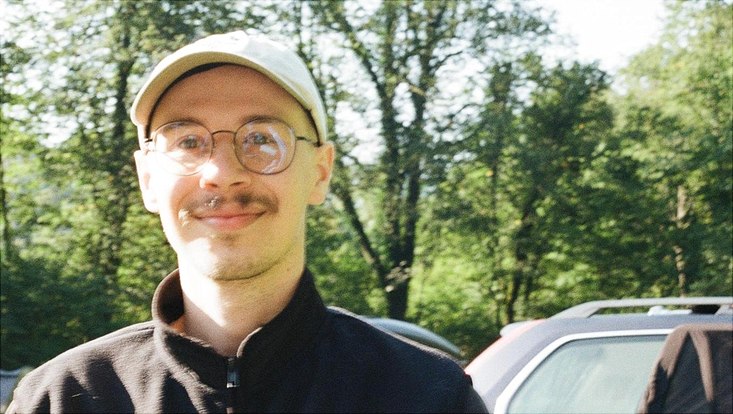Aaron Hofer
11 December 2024

Photo: Aaron Hofer
Aaron Hofer hails from a small village in the Austrian Alps near Salzburg. He earned his Master's degree in Physics from the University of Vienna in February 2022, with a thesis titled "Topological Quantum Field Theories (TQFTs) with Additional Structure." His research focused on defects and tangential structures, particularly in two-dimensional theories with spin structures. Currently, as a PhD student in the Algebra and Number Theory group within the Mathematics Department at Quantum Universe, he is studying defects in non-semisimple 3D topological field theory and 2D logarithmic conformal field theory under the supervision of Ingo Runkel.
What is the topic of your research?
My research focuses on the connection between three-dimensional topological field theories and two-dimensional conformal field theories which appear as boundary theories of such 3D TFTs. This connection has been known since the 1980s and, at its core, can be phrased as the statement that the TFT encodes the (generalised) symmetries of the CFT on its boundary. In this setting the symmetries of the CFT are implemented via topological defects, which can be studied rigorously using a mixture of tools from algebra and topology. My project focuses on an explicit realization of a class of finite non-semisimple 3D TFTs as the symmetry TFTs of certain 2D CFTs and the corresponding algebraic structures.
What fascinates you about your research focus?
Since my undergraduate studies I have always been fascinated by the importance of symmetry in both math and physics. I'm in particular partial to the use of groups as an abstraction of symmetry to understand physical systems. After finding out that the classical way of studying representations of the symmetry groups is insufficient to understand more general kinds of symmetries, I became more and more interested in these generalised symmetries as well as the abstract tools which are needed to study them.
Moreover, it's very exciting to work on a topic which is interesting from both a physical as well as a mathematical point of view, as it allows me to combine physical intuition with mathematical rigour to arrive at statements which are (hopefully) interesting for both communities.
What do you like about the cluster Quantum Universe?
The QU Days offer a great way to break out of my day-to-day research and learn about new and exciting discoveries in the other areas. It also makes me feel like I am part of a larger community working towards a common goal. I really liked the QURS days too. The session on time management was particularly valuable for me, as I tend to procrastinate a lot. The poster session was also great, it was fun trying to explain my research to others in non-technical terms and at the same time learning what other students in the cluster are working on and why they care about their research. I am also a member of the student council, which gave me lots of interesting insights into the cluster and how bigger scientific collaborations work in practice.
What do you like to do in your free time?
When I am not doing math or physics, I enjoy cooking and eating vegan food, going to concerts, and skateboarding.
